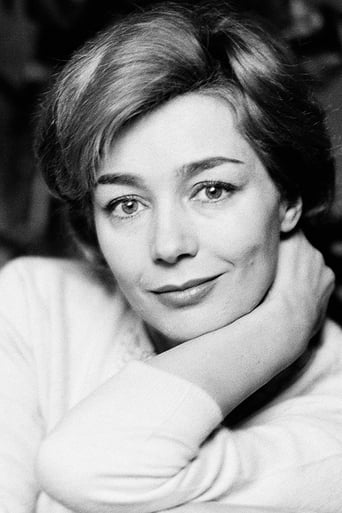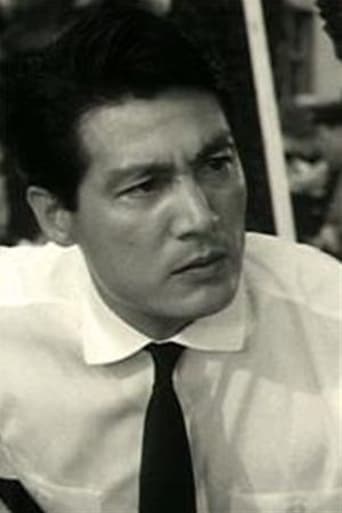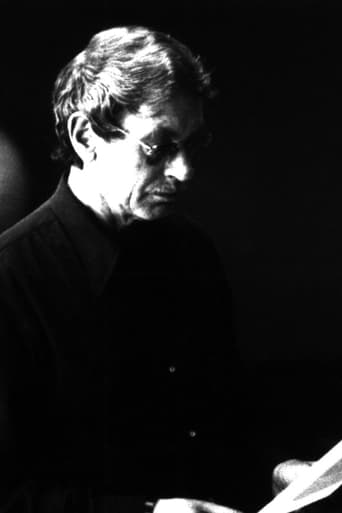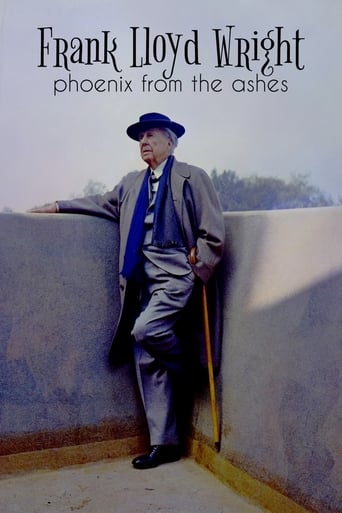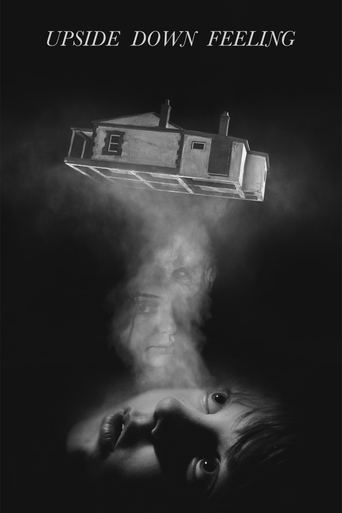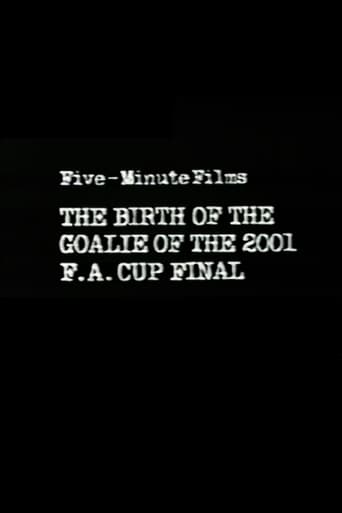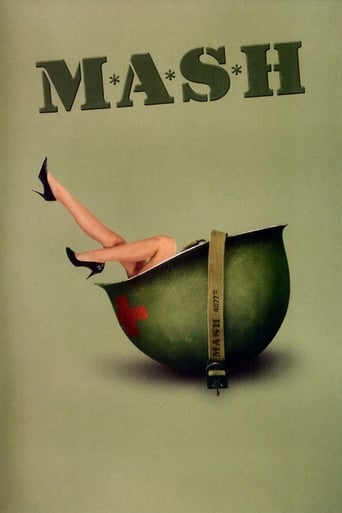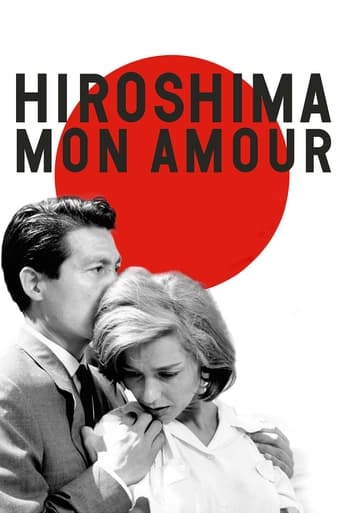
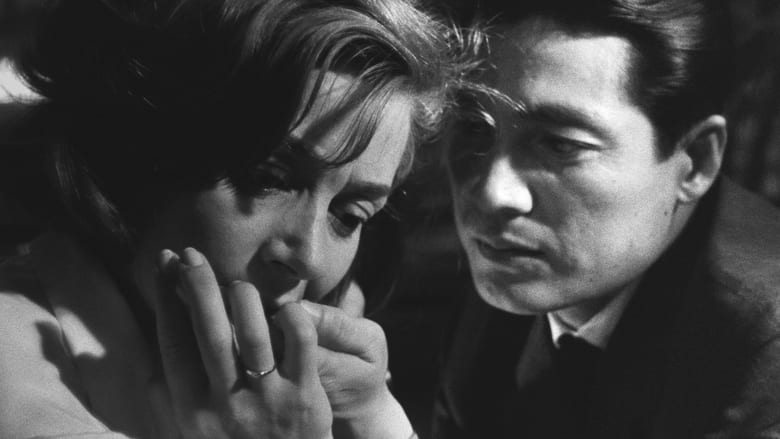
Hiroshima Mon Amour (1959)
The deep conversation between a Japanese architect and a French actress forms the basis of this celebrated French film, considered one of the vanguard productions of the French New Wave. Set in Hiroshima after the end of World War II, the couple -- lovers turned friends -- recount, over many hours, previous romances and life experiences. The two intertwine their stories about the past with pondering the devastation wrought by the atomic bomb dropped on the city.
Watch Trailer
Cast
Similar titles

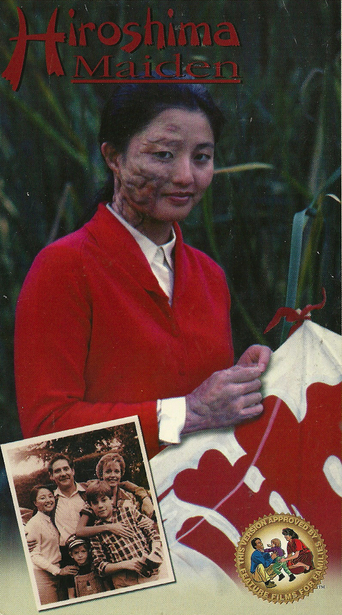
Reviews
How sad is this?
best movie i've ever seen.
The thing I enjoyed most about the film is the fact that it doesn't shy away from being a super-sized-cliche;
Through painfully honest and emotional moments, the movie becomes irresistibly relatable
A first-time encounter with Resnais' accepted Rive Gauche masterpiece, Hiroshima MON AMOUR, a doleful exploration of the post-holocaust psyche between a French woman (Riva) and a Japanese man (Okada) in Hiroshima, she comes to this alien land to shoot a pacifist film, and he is a local architect.After the tantalising opening sequences where two naked bodies amorously twisting, caressing under a rain of dust or maybe some ash - is it referring the radiation after the nuclear bomb attack? Hard to tell, Resnais, starts the film with his documentarist narration of the unnamed French woman, aka, she, wanders in the hospital, the war museum as a distant outsider in his superlative dollying shots, observes the damage a decade later, with physical abnormality and disfigurement on the surface, but what about the inside?She and he, mutually attracted to each other for a dalliance, but soon her troubled memories are induced by the burgeoning romance, at the same year of the nuke tragedy, in a small French town Nevers, her love affair with a German soldier (Fresson) comes to a halt after his death, she became the shame of her family and the talk of the town, locked in the cellar, her mind was on the verge of a breakdown. Now, years later, in Hiroshima, she indulges in a passionate rendezvous with him, a suave Japanese man, who evokes her deceased lover and she must undergo a distressing process of uncovering old scars in front of him, frankly and unconditionally. Moreover, within one day, she is leaving Hiroshima forever, is there a possibility that she can stay here with him, even just for a few more days? She has one night to decide.Marguerite Duras wrote the screenplay specifically for this film, which granted her an Oscar nomination, the westerner-meets-oriental milieu is in her familiar soil, e.g. her autobiographical taboo relationship in THE LOVER (1992), but here, her formulaic-ally repeated, essayistic monologue and dialogue, coalesce seamlessly with the magic editing, which jumps back-and-forth between present and flashback, sharply project the frisson of a soul tormented by the consequences of the war, a fatalistic blow to any sensible mind, the damage has done, it is irrevocable, and irredeemable.Emmanuelle Riva, what an impeccable actress on screen, transcends the minimalistic story to express such an emotional, heartrending breaking-down of her character's ordeal and shares a tender yet wavering chemistry with Eiji Okada, whom one might think lesser due to his mechanical articulation (he couldn't speak French so everything he says is phonetically recited).In the end, he is Hiroshima and she becomes Nevers, their individuality vanishes, what they personify are two disparate countries, living under the shadow of the loathsome war, can never take a deep breath since it still hurts underneath.
Memory is something that everyone has, everyone forgotten something that they didn't want to forget, and some try to ignore and forget this memory, happy or sad, she always comes back and consume us altogether. A married French actress spending her last day in Hiroshima as she completes her participation in a film about peace, and at the same time she has a romantic relationship with a married Japanese architect, that reminds her of a tragic love she had during the war, as they wait for time to pass and separate them painfully, she tells him the story of her tragic love. War and memory are intertwined poetically, beautiful and painfully as the protagonists at the beginning of the film, the tragic past of Hiroshima is also intertwined with the tragic past of this woman in Nevers, a French town, although these cities seem so different, in the view of the protagonist these cities are nearly identical to her, because it evokes on her a pain and the memory of a war, Hiroshima could be Nevers, Paris, New York, Rome, any city in the world, Alain Resnais and Marguerite Duras (the director and the screenwriter of the film)shows that people have forgotten the true meaning of Hiroshima, people remember the city as a tragic scenario of an unfair fate, but forget why it was built: the love. The bodies of our protagonists intertwine and love, as was shown in opening, as well as their cities and their past, collective and individual, everything is intertwined and becomes one thing in Hiroshima. The couple's love is beautiful and intense, causing the viewer to sympathize the most with these characters, even if their names are never revealed, the personal tragedy of the protagonist is shown intensely by Emmanuelle Riva, it expresses all of her pains and torment of her memory while her lover is somewhat overshadowed,but he is a lot present as a character. The black and white of this film is excellent especially today, since it refers to a past,the past becomes present, the present becomes beautiful but painful and the future becomes uncertain. The script of the movie is perfect, it shows painfully, beautiful and sentimental way the past and the memory, everything contributes this film to be one of the greatest achievements in film history, and impressively, Hiroshima mon amour remains a beautiful and original film and quite possibly will never become dated as memory, love and unfortunately the war will always be present in some form in our present or future everyday.
Featured in the book 1001 Movies You Must See Before You Die, I obviously would never have heard of, and probably not watched, this French film without reading about it, I hoped it was going to be a recommended film to agree with, directed by Alain Resnais (Night and Fog, Last Year in Marienbad). Basically the film is a 36 hour long period and conversation between French actress Elle (BAFTA nominated Emmanuelle Riva), referred to a She, and Japanese architect Lui (Eiji Okada), referred to as He. They have a brief relationship and are now separating, talking about failed relationships they compare them to the bombing of Hiroshima, and perspectives and incidents from inside and outside the attack are seen in documentary footage. It is an interesting structure of repetitive dialogue, mostly narration over small flashbacks of her life, her youth and punishment for a forbidden love affair with a German soldier (Bernard Fresson), and of course the documentary footage of the August 6 1945 Second World War Hiroshima atomic bombing, the main themes of this film are memory and oblivion. Also starring Stella Dallas as Mother and Pierre Barbaud as Father. The film is rated well by critics, but to be honest I don't know if I can completely agree, I found the film a bit too talkative at times, the intimacy stuff is good, and the harrowing footage of the bombing effects, victim injuries and the devastation, is most effective, so for that I found something interesting in it, overall it's an alright drama, in my opinion. It was nominated the Oscar for Best Writing, Story and Screenplay - Written Directly for the Screen, and it won the BAFTA for the UN Award, and it was nominated for Best Film from any Source. Worth watching!
1959's Hiroshima Mon Amour (HMA, for short) was kind of like watching 3 quite different movies all seemingly rolled up into one. (And, as it turned out, that wasn't necessarily a good thing) HMA certainly started off quite promising. It began as something of a pseudo-documentary that screened vintage, newsreel footage showcasing the devastating aftermath effects of the A-bomb once it had been dropped on the city of Hiroshima in 1945.I was actually quite shocked by these horrific images of burn-victims (and such) who managed to survive this monstrous blast of mass destruction.Following this startling and impressive opening sequence, HMA abruptly shifted gears as it morphed into a weepy, little Chick Flick, where (through flashbacks) Elle retold (in the minutest detail) the tragedy of her lost virginity and public humiliation at 18.You can be sure that after being witness to the visual horrors of Hiroshima, the recycled memories of Elle's deflowering seemed quite pathetic and almost laughable by comparison.Following this dragged-out episode (which took Elle a whole half hour to get it out of her system), HMA then "mutated" (literally) into a major "WTF!?" soap opera which highlighted Elle & Lui's puzzling, dime-store romance that was quickly coming to an end.This whole business had me wishing, and hoping, and praying that the ground would suddenly open up, swallow these 2, and, with that, promptly put this movie out of its pain and misery for good.Unless HMA was deliberately meant as some sort of weird audience-torture, I honestly don't see the point that French film-maker, Alain Resnais was trying to get across with this 3-in-1 cinematic montage. But, whatever it was, I'd say that he clearly missed the mark.
